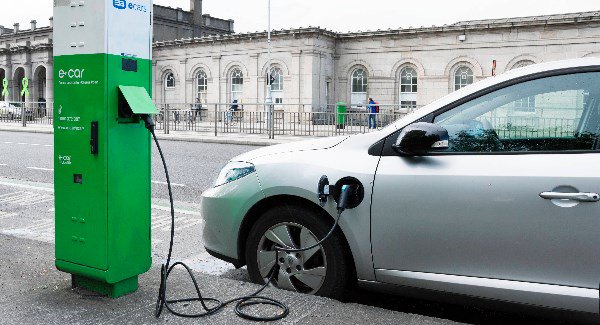International Women’s Day 2024 – Inspire Inclusive
As we approach International Women's Day, it's an opportune moment for us to reflect on the strides made towards gender equality and to renew our...
3 min read
Caroline Geoghegan : Feb 6, 2023 12:00:00 AM

In October 2022, the Irish Environmental Protection Agency reported that only half of Ireland’s sewage was being treated in compliance with the EU’s Water Framework Directive. It was acknowledged at the time that the EU average for compliance with the directive was in the region of 90%.
Now, three months later, the EU has decided to refer Ireland to the EUJ.
Similar to ISO 14001, the EU Water Directive is a framework for optimal water management with environmental protection at the heart of a stringent set of requirements.
In response to the directive, in December 2022 the Irish government signed off on what it thought was ‘water-tight’ legislation. However, the EU has confirmed it stands behind its decision to refer Ireland to the EUJ as the newly passed laws fail to adequately deal with all requirements of the water directive. A spokesperson for the EU also confirmed that Irish government officials failed to advise the Commission of the newly enacted Water Environment Act.
The EU Water Framework Directive, which was published in 2000 requiring legislative compliance from member states by 2003, mandates member states to achieve and maintain high standards of water purity for the protection of all waters, inland and coastal, ecosystems and inhabiting wildlife, at a level considered suitable for human consumption. Participating governments are required to enshrine both in law and practice the protection of waters and species, as well as the remediation and prevention of pollution including sewage, chemical/agricultural run-off etc.
For some time, Ireland has continued to fail to meet agreed EU targets in the treatment of sewage, a failure which has led to the constant deterioration of water quality across our rivers, lakes and shores. Given that the newly passed legislation appears not to have a clearly defined pathway to compliant implementation it remains unclear how long it will take the Irish government to satisfy the EU that it is fully aligned with both the objectives and requirements of the directive.
It’s not just the Irish government that is failing to meet Sustainability targets. While their intentions are honorable, many Irish businesses are struggling to get clear sight of the future that is Business Sustainability to which high standards of water and waste management are central.

Simply put, business or corporate sustainability is best business practice mindful of environmental, social and corporate governance responsibilities. Also known as Green Business Operations, it balances strategic emphasis equally between environmental, financial and social, giving equal weighting to the objectives of all three areas.
In working to reduce corporate their negative environmental impact, including a significant reduction in carbon footprint, by employing sustainable best practices, green-focused businesses help promote and achieve universal positive change.
By integrating organically developed sustainability management into their business process operations model, organisations can achieve business growth in tandem with sustainability initiatives.
Nurturing a culture of sustainability and developing a sustainable business model are key to corporate scalability and growth.
Generating employee awareness of best sustainable business practices in an integral step in achieving a positive and profitable sustainable business model.
Examples of some ‘green’ cultural changes that could be introduced by eco-focused business leaders might include:
A sustainable business model is such that it continues to be robust in the face of ever-changing social and environmental trends.
By gaining an understanding into their business ecosystem - suppliers, customers, vendors, partners - these organisations can quickly identify both the positives and negatives into which they can tap or indeed remove.
Furthermore, businesses can leverage their green credentials by publicly declaring their commitment to sustainable production, operations and services, thereby appealing to a cross-generational set of customers, partners and suppliers that are of a similarly green mindset.
In working to a sustainable business model, organisations can both expand and refresh their corporate social responsibilities while strengthening their connection with local and broader communities as well as broadening their corporate network.

Central to a sustainable business model is the switch to Environmental Thinking.
Environmental thinking means coming to the understanding that we are just a small cog in the bigger natural wheel. It means seeing things through environmental eyes and generating awareness of our impact on the environment - immediate and broader - and then natural world.
In a time of multiple crises - war, energy, environmental etc. - many businesses are juggling and struggling in an attempt to achieve growth and innovation whilst maintaining profitability. Sustainability, whilst a strategic must, isn’t necessarily an easy achieve for many organisations, which is why CG Business Consulting designed, developed and rolled out its Sustainability Services offerings at the beginning of the decade.
Our Sustainability Consultants are experts in cross ISO areas of energy, environmental and quality management, the combination of which help our customers to achieve the optimal sustainable business model required to achieve their green goals.
Underpinning our Sustainability Services is our CGBC Net Zero Roadmap, a plan to take your organisation from negative to positive when it comes to environmental impact. Our consultants will work with you to build the environmental, social and financial pillars that underpin the optimal sustainable business model.
For more information on CGBC’s Sustainability Services, ISO 14001, or Environmental Management Systems, contact Caroline on 01 620 4121 or hello@cgbc.ie.
FREE DOWNLOAD

Download a copy of the CGBC Sustainability Survey Infographic.
We surveyed Irish businesses to find out their current stance on Sustainability. The results proved very interesting.

As we approach International Women's Day, it's an opportune moment for us to reflect on the strides made towards gender equality and to renew our...

As the sun sets on a year that saw multiple climate records broken, the UN has reached an agreement on a landmark Loss & Damage Fund at COP 28.

1 min read
Government drive to ban sales of diesel and petrol cars in Ireland by 2030 The Irish Government is drafting radical new laws that will see the sale...